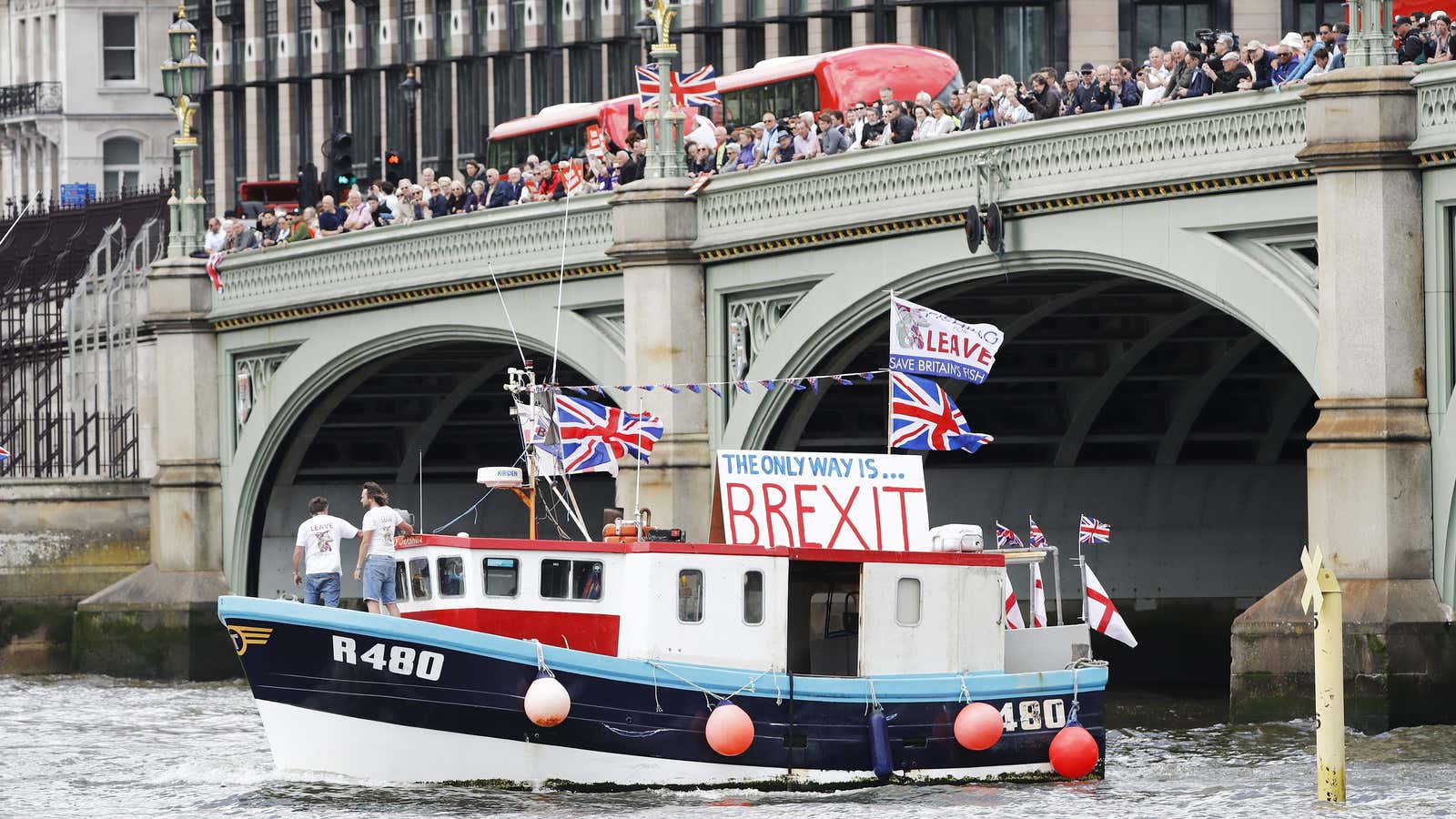Britain will vote on Thursday on whether to stay in the EU or leave. The toxic climate in the UK over a “Brexit” may seem baffling to outsiders, but some of the big, existential fears at work there probably feel familiar to those watching from America, where Donald Trump, the presumptive US Republican presidential candidate, has taken over the airwaves.
Here are some of the parallels between the Trump and Brexit campaigns:
Immigration
Trump wants to make America great again. Britain seeks to restore its splendid sovereignty, whatever that means, by casting off the shackles of Brussels bureaucrats and reasserting a Britain that matters, that truly punches above its weight on the world stage.
Like Trump, those who want to leave the EU rail against immigration, arguing Brits’ safety and prosperity are at risk.
“We have absolutely no power to control the numbers who are coming with no job offers and no qualifications from the 28 EU countries,” Boris Johnson, the former London mayor and a prominent voice in the “leave” camp, said at a recent Brexit rally. Immigration has been rising steadily in spite of promises from the prime minister to curb it.
Sadiq Khan, London’s pro-EU mayor, said that the Brexit campaign “hasn’t been project fear, it’s been project hate as far as immigration is concerned.”
Free trade
Both Trump and the vote leave campaign challenge the long-held establishment belief that free trade benefits everyone, and those benefits will eventually trickle down to everyone.
Trump says the economy is in such bad shape because “stupid politicians have made stupid trade deals.” Johnson has said if Britain were presented with the deal it has with the EU today, it would be “deranged” to take it. (It did take the group 15 years to properly define chocolate.)
In search of greatness
Each camp is making its case within the cultural confines of its country. Trump is bombastic, brazenly self-promotional, and loves to talk about how rich he is. He deeply offends Brits on both side of the political aisle (the Republican presidential candidate is so widely disliked here that parliament was forced to hold a debate on whether to ban him from entering the country after more than half a million people signed a petition to stop him).
But the Brexit campaign is equally nasty, in its own particular British way. Some, such as Johnson, are more nuanced and certainly more articulate than Trump. Others, including Nigel Farage, leader of the far-right UKIP party, seem to revel in unveiling, or unleashing new and noxious brands of xenophobia and racism.
Either way, both campaigns will leave their respective countries worse off. They have lowered the level of civil discourse, and left behind a trail of ugly, fact-bending fear-mongering that will linger long after the votes are counted. And no one will recover quickly from that.
